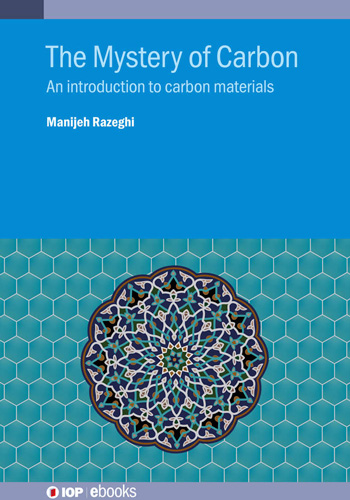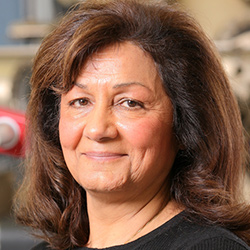New Textbook Demystifies Carbon Materials
The focused, concise book aims to be an essential and accessible text for solid-state and electrical engineering students
Carbon is a primary building block of life and forms millions of organic compounds with hydrogen, making it essential to the universe. It is also found in nearly every part of the human body.
 Northwestern Engineering’s Manijeh Razeghi wrote a new textbook offering a fundamental understanding of carbon, its science, applications, and recent discoveries made in the field of carbon materials.
Northwestern Engineering’s Manijeh Razeghi wrote a new textbook offering a fundamental understanding of carbon, its science, applications, and recent discoveries made in the field of carbon materials.
The Mystery of Carbon: An Introduction to Carbon Materials (IOP Publishing Ltd, 2019) presents a vision of carbon as an element essential to all human endeavors, from life itself to many technologies that may emerge over the next decades. It is designed to give science and engineering graduate students a succinct overview of carbon materials and their impact on emerging concepts in science and technology.
Carbon has always fascinated Razeghi, Walter P. Murphy Professor of Electrical and Computer Engineering and director of the Center for Quantum Devices.
 “Everything you can see in the world is made from carbon, including humans,” said Razeghi. “From energy to electronic properties to new technologies, there are so many reasons why carbon is important.”
“Everything you can see in the world is made from carbon, including humans,” said Razeghi. “From energy to electronic properties to new technologies, there are so many reasons why carbon is important.”
The Mystery of Carbon “is designed for the benefit of the solid state and electrical engineering student at the graduate level … without having to pass through the vast amount of organic and physical chemistry which is normally bundled together into a book on carbon,” as Razeghi wrote in the book’s preface.
“Professor Razeghi has done a challenging task in this book by integrating the fundamental science of carbon with current research topics to stimulate interest of her readers at the senior and graduate level,” said Robert Chang, professor of materials science and engineering. “This short and concise book takes only one sitting to read, but one walks away with a global perspective on the subject.”